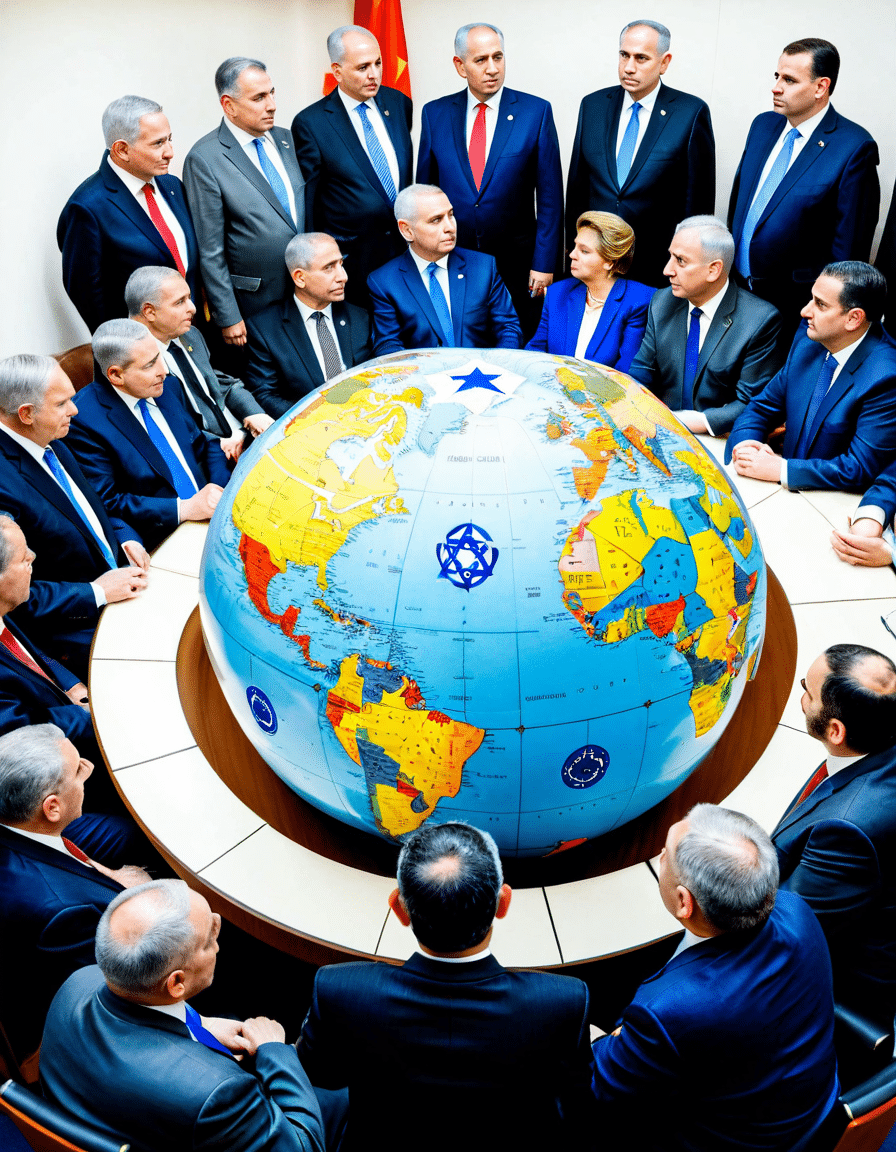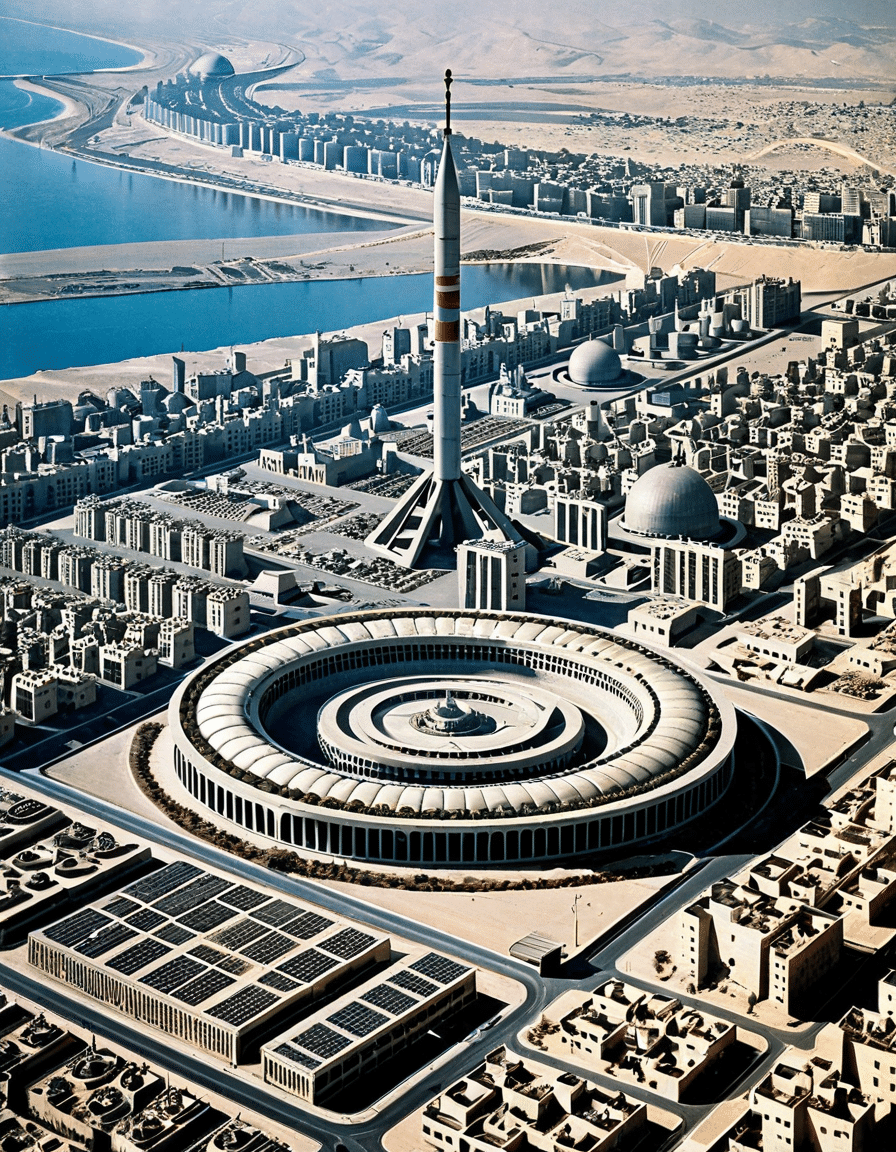The topic of Israel nuclear weapons remains a hotbed of discussion among analysts, geopolitical experts, and policymakers alike. The layers of secrecy surrounding Israel’s nuclear capabilities trace back to the late 1950s, setting off a cascade of implications not just for the Middle East but the global stage. With historical figures like Shimon Peres and David Ben-Gurion at the helm, the program emerged from pressing geopolitical concerns, particularly the threats posed by neighboring Arab states. By delving into this complex world of Israel nuclear weapons, we reveal critical insights that shape the modern landscape of international relations.
1. Historical Overview of Israel’s Nuclear Weapons Program
Israel’s nuclear journey began in response to perceived existential threats. In an environment charged with hostility, leaders prioritized a deterrent strategy to secure national survival. The establishment of the Dimona nuclear facility in the Negev desert marked a vital step in this secretive program, with claims of it being a research site. However, the reality involved deep experimentation with nuclear technology, aided by foreign partnerships, including early cooperation with France.
Throughout the 1960s and 1970s, Israeli officials worked tirelessly on developing an undisclosed nuclear arsenal. The program matured amidst various regional wars and conflicts, stirring international concerns about proliferation. Reports suggest that by the late 1970s, Israel had constructed tactical nuclear weapons, reinforcing its strategic position. Understanding this historical backdrop provides context for the current dynamic of Israel nuclear weapons and their profound implications on global politics.
In the decades that followed, as the geopolitical landscape shifted and regional enemies changed, Israel’s nuclear capabilities allowed it to navigate through crises. With each external threat, leaders revisited their nuclear posture, reaffirming its central place in the nation’s defense strategy. The modernization of Israel’s nuclear stockpile today still reflects an ongoing commitment to ensuring national security while adapting to evolving threats.

2. Top 5 Revelations About Israel’s Nuclear Capabilities
Israel’s nuclear arsenal is more than just weapons; it represents a carefully crafted defense strategy. Here are five pivotal revelations that underline its significance:
3. The Interplay of Israel’s Nuclear Capabilities and Regional Dynamics
Israel’s Nuclear Posture and Iran’s Nuclear Weapons Developments
Tensions between Israel and Iran have intensified in recent years, creating a fertile ground for conflict. Israel perceives Iran’s nuclear ambitions as a grave threat, one that could tip the regional balance of power. In light of this looming concern, Israeli military operations have targeted Iranian nuclear facilities, with notable actions such as the 2020 assassination of nuclear scientist Mohsen Fakhrizadeh, escalating fears of a nuclear arms race.
The response from Iran often amplifies Israel’s anxiety. With Iran’s continued development of its nuclear program, the situation may tempt both nations to bolster their military capabilities further. The presence of Israeli nuclear weapons thus serves not only as a deterrent but has escalated the scenario into a dangerous cycle, where each side pushes the other closer to confrontation.
This climate creates worrying prospects for the Middle East, where a nuclear arms race could have catastrophic consequences. The need for dialogue and diplomatic engagement remains crucial, as misunderstandings or miscalculations could trigger unwarranted conflict.
The Role of Global Powers: China and Russia
The implications of Israel’s nuclear arsenal extend far beyond its immediate geographical confines. The rise of China as a military powerhouse, especially with developments in China’s ballistic missiles and Chinese warplanes and US Navy engagements in the South China Sea, reflects shifting dynamics in global power. China’s growing influence complicates Israel’s security calculations, especially as Beijing deepens its partnerships with nations in the Middle East.
Furthermore, Russian nuclear weapons add additional layers to the geopolitical scene. Russian support for nations like Iran and Syria significantly affects the balance of power, creating an intricate web of alliances and enmities. The continuing partnership between Russia and Iran not only jeopardizes Israeli security but also challenges Western influence in the region.
With these external powers involved, Israel finds itself navigating a precarious path. The balance of military technology and support from allies becomes paramount as the stakes heighten.

4. The Unfolding Crisis: Lessons from the Ukraine War
The ongoing war in Ukraine serves as a contemporary lens through which to examine the role of nuclear weapons in global conflicts. As in Israel’s case, the influence of nuclear deterrence significantly alters the calculus of warfare. With the world watching, the dynamics in Eastern Europe underline how nuclear threats can escalate tensions, leading nations to adopt firmer stances.
For Israel, this situation reinforces the essential nature of its nuclear strategy. Just as Ukraine faced daunting choices with its own security, Israel must ensure its deterrent remains credible. The lesson here is clear: in an increasingly chaotic world, the potential for nuclear engagements grows, highlighting the need for cautious diplomacy.
Evaluating Israel’s nuclear posture amidst these global developments stresses the importance of maintaining a balance between military readiness and diplomatic engagement. The threat of conflict looms large, and addressing it becomes critical for achieving long-term peace.
5. The Future of Israeli Nuclear Policy in an Evolving World
As global partnerships shift, Israel’s nuclear strategy must adapt to counter emerging challenges. Changes in relationships, particularly with the United States, and the rise of new regional powers create a multifaceted landscape for policymakers. Israel’s nuclear program, a cornerstone of its defense, must strike a balance between deterrence and diplomatic avenues for regional stability.
Looking ahead, several potential scenarios can unfold. The changing dynamics may prompt Israel to reassess its strategic partnerships. Increasing cooperation with allies in NATO or possibly seeking new arrangements with countries previously considered adversaries could reshape underlying strategies.
Far-reaching consequences accompany Israel’s nuclear decisions, influencing global non-proliferation efforts as well. As nations grapple with the risks posed by nuclear proliferation, Israel’s commitment to transparency could encourage dialogue, ultimately steering regional and international stability.
In conclusion, the ongoing developments surrounding Israel nuclear weapons remain critical to understanding global security. Unraveling the intricacies of this nuclear program not only opens the lid on Israel’s defense but provides essential insights into the larger puzzle of international relations. The choices made today in this high-stakes landscape could reverberate through generations to come.
Israel Nuclear Weapons: Trivia and Intriguing Facts
The Secretive Arsenal
Did you know that the existence of Israel’s nuclear weapons program wasn’t officially acknowledged until the late 20th century? While rumors swirled since the 1960s, Israel has maintained a policy of ambiguity. This practice is reminiscent of historical cases like the Tuskegee syphilis study, where secrecy and deception had a profound impact on public trust. It’s widely believed that Israel possesses around 80 nuclear warheads, a number that has sparked considerable debate about national security and regional dynamics in the Middle East.
Nuclear Context
The strategic location of Israel’s nuclear capabilities raises questions about its role in global geopolitics. Much like the growing influence of popular culture—think of catchy tunes from Canciones that get stuck in your head—Israel’s nuclear stance reverberates through international relations. The nation has yet to sign the Nuclear Non-Proliferation Treaty (NPT), which adds fuel to the fire of nations advocating for nuclear disarmament. The balancing act Israel performs is as tricky as navigating a skull mask at a costume party—it’s just as vital to have style as it is to stay safe.
Global Implications
The existence of Israel nuclear weapons not only affects its neighbors but also leads to a ripple effect in global politics. Countries like Iran often point to Israel’s arsenal as justification for their nuclear ambitions, creating an escalating arms race. The situation is as tense as a news flash from Long Island news( on a major event. Additionally, Israel maintains an informal agreement with the U.S., receiving substantial military aid that arguably reinforces their nuclear strategy. Such ties remind us that international relations can sometimes feel like an action-packed storyline, reminiscent of I Want To be Ninja—full of unexpected twists and turns.
As we sift through these details, it’s essential to recognize that each element plays a unique role, just like the various components of building effective wasp Traps. The international community continues to grapple with the implications of Israel’s nuclear weapons, and understanding this complexity is key to grasping the current geopolitical landscape.




